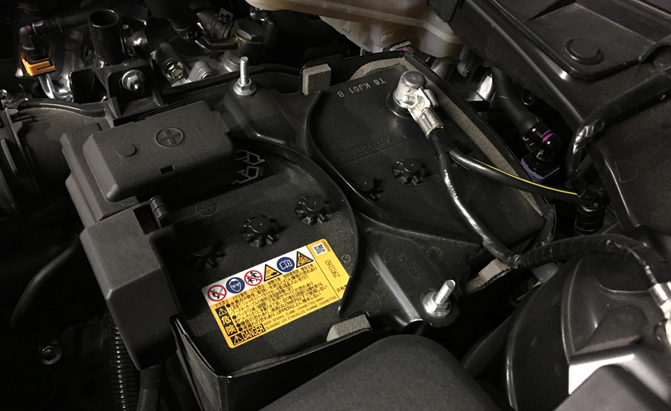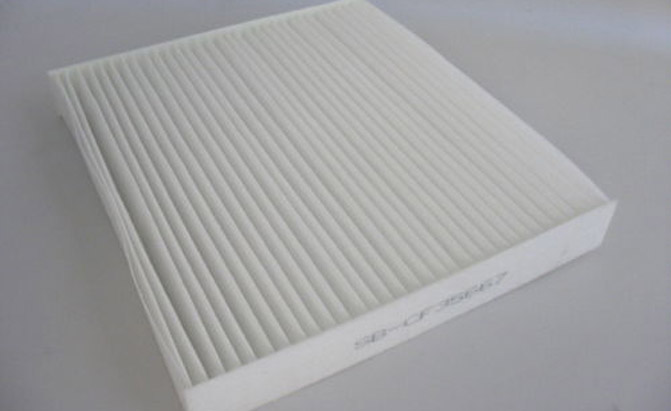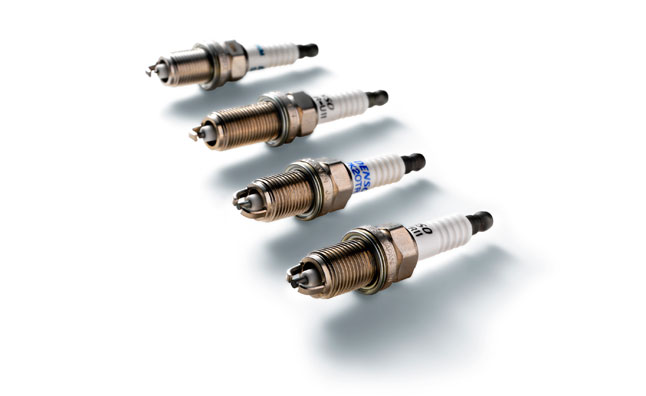Are you stupid rich? Do you like writing big cheques?
Do you enjoy having money fights with your rich pals? Do you smile while watching your savings go up in smoke faster than a Samsung Smartphone? Does shoveling your hard-earned cash into the pockets of your local dealer service centre, or mechanic, make you happy?
If you answered “no” to any and all of the above (we’re sure you did), be sure to read on for a selection of tips and tricks that pertain to your ride, and can help avert big-dollar problems, on the cheap. After all, saving money makes you feel warm and fuzzy inside, and sometimes, saving money on car repairs is a really easy thing to do, when you keep some preemptive maintenance tips in mind.
Here’s a look at some proven ways to spend a little bit of money now, in order to prevent spending a lot of money (and dealing with a lot of hassle), later.
#1: Use a Battery Trickle Charger

Your newer vehicle is full of electronics that are all fancy, and also hard on your ride’s battery. What’s more, those battery-sucking electronics are ultra-fussy about having a just-right amount of supplied voltage, to do their jobs properly.
Numerous systems, like your ride’s alarm, ECU, smart key, and multimedia interface can all draw from the battery, even while your ride is turned off. A whackload of common electronics issues, and especially the really frustrating ones that’ll make you Russian-level angry, can be caused by a battery that’s low on charge. This is even more likely if you drive your vehicle infrequently, or on frequent, short drives, where the engine isn’t running long enough to fully charge the battery.
Enter the trickle charger: an enchanting little device available for as little as $30, and capable of recharging and conditioning your ride’s battery while you’re not driving it. Just hook the leads up, plug the trickle charger into your wall outlet, and microchips do the rest.
Your investment in a battery trickle charger saves you the potential cost of having a technician diagnose electronics issues caused by low battery voltage, and the cost of visiting a dealership to reset various systems that may become borked when the battery dies, including remote keyfobs, safety systems, radio alarm codes, or even the entire ECU. A trickle charger can also save you the cost and hassle of a tow-truck or boost, as a dead battery might just leave you stranded.
As an added bonus, with a trickle charger, there’s no need to remove the battery from that sports car you store in your garage for the winter. Your ride’s battery will last longer, too.
#2: Change Your Cabin Air Filter

If you don’t know whether your ride has a cabin air filter, or if you don’t know what a cabin air filter is, chances are your cabin air filter is plugged near-solid with dirt, pollen, dust, insects and other grossness.
A plugged cabin air filter can cost you piles of cash in numerous ways. First, it makes life hard on your air conditioner, since it has to work harder and more frequently to pump cold air into the cabin through a plugged filter. Second, that excessive running of your AC system wastes fuel and costs you money. Third, a clogged air filter can limit airflow around HVAC system components, causing things to overheat, or allowing excessive ice and frost to build up in the air conditioner, which can cause moisture problems, leaks, or system failure, which you’ll have to pay to diagnose. Further, a clogged cabin air filter makes your ride’s HVAC system, and especially the windshield defogger, work poorly.
ALSO SEE: 5 Tips When Making the Switch to Winter Tires
Typically, cabin air filters are fairly small, so they get plugged fast and need changing about once a year, maybe more. Thing is, they’re fairly inexpensive, and most drivers can change a cabin air filter in mere minutes.
Spending $15 to $30 on a new cabin air filter, and searching YouTube for instructions on how to change it, keeps your climate control system happy, prevents premature wear on system components, and may save you time and money visiting a mechanic to figure out why your ride’s climate control sucks.
Mechanic Nick Labrie comments, “Cabin air filters are the first thing I look at when a customer comes in complaining of poor performance from their heat or air conditioning system. About eight times out of 10, the customer had no idea this filter existed, or required changing, and a new filter fixes the issue. The customer is usually pretty happy — in most cases, changing a cabin air filter is easy, quick, and cheap”
#3: Change your Spark Plugs

This is such an easy, cheap job on most four-cylinder engines that it’s a wonder mechanics still see problems caused by running old plugs on a regular basis. In many cars, spark plugs are fairly cheap, easily accessible, and if you know how to operate a wrench, you can probably change your own, right in your driveway (but ask a mechanic for help if you’re not sure how). Of course, these days, spark plugs last a long time — but they still need to be changed regularly to keep your engine running perfectly. Note that engines with Direct Fuel Injection, marketed as GDI, TSI, TFSI, Skyactiv, and the like, are extra picky about spark plug changes.
ALSO SEE: Have Mold in Your Car? Here’s How to Get Rid of it
Of course, these days, spark-plugs last a long time — but they still need to be changed regularly to keep your engine running perfectly. Note that engines with Direct Fuel Injection, marketed as GDI, TSI, TFSI, Skyactiv, and the like, are extra picky about spark plug changes.
Why? This type of engine is fussier than most about having a very precise and controlled combustion process within its cylinders, and staying on top of factory-prescribed maintenance, at the specified intervals, is extremely important.
Change the plugs, or change a bunch of other stuff, and the plugs, too: that’s the logic here. In a modern engine, past-due spark plugs can foul up quickly, putting more strain on the ignition coils that fire them, which can cause ignition coil overheating and sporadic failure. When fouled plugs start causing coil packs to fail, misfires often result, which cause issues with things like tricky-to-fix valve gunk, Check Engine lights, and even fuel injector damage.
In a multitude of modern engines, dirty spark plugs have a rapidly snowballing effect on other systems and components, so changing your ride’s spark plugs on time, especially if you’re running a six or eight cylinder engine, can keep you from dishing out a ton of cash on new coil packs, injectors, and valve cleaning, too. Oh, and with new plugs, your ride will burn less fuel.
#4: Use a Code Reader

Your ride has a complex network of electronic sensors, modules, computers and other gizmos that analyze and alter the way your engine, transmission, emissions system, and numerous other components work. If this sensor network picks up a problem, the likely result is the dreaded “CHECK ENGINE” light. This little illuminated icon of doom can pop up for a multitude of reasons, and what’s more, certain detected issues don’t cause the light to light up at all.
So, whether your ride feels strange or sluggish, has recently started drinking a lot more fuel, or is showing you its CHECK ENGINE light, a code reader, which plugs into your ride’s sensor network, can show you what’s up.
Available for as little $30 as a module that Bluetooth-links to your Smartphone, a code reader quickly scans your ride for trouble, shows you what the trouble is, and can save you a trip to a dealer or mechanic to diagnose a strange sensation or CHECK ENGINE light. Further, a code reader is a great investment if you’re out shopping for a used ride: hook it up for a scan of the model you’re considering, and it could save you big bucks if that machine has a multitude of stored trouble codes lurking.



Leave a Reply